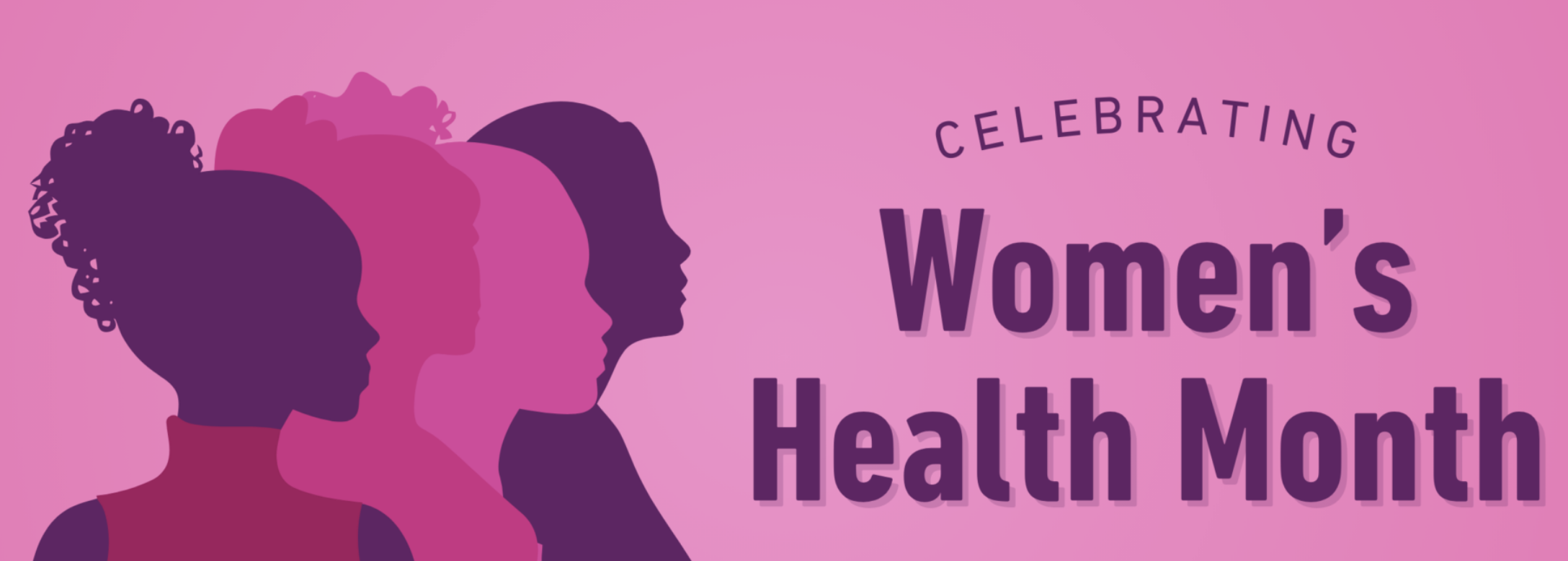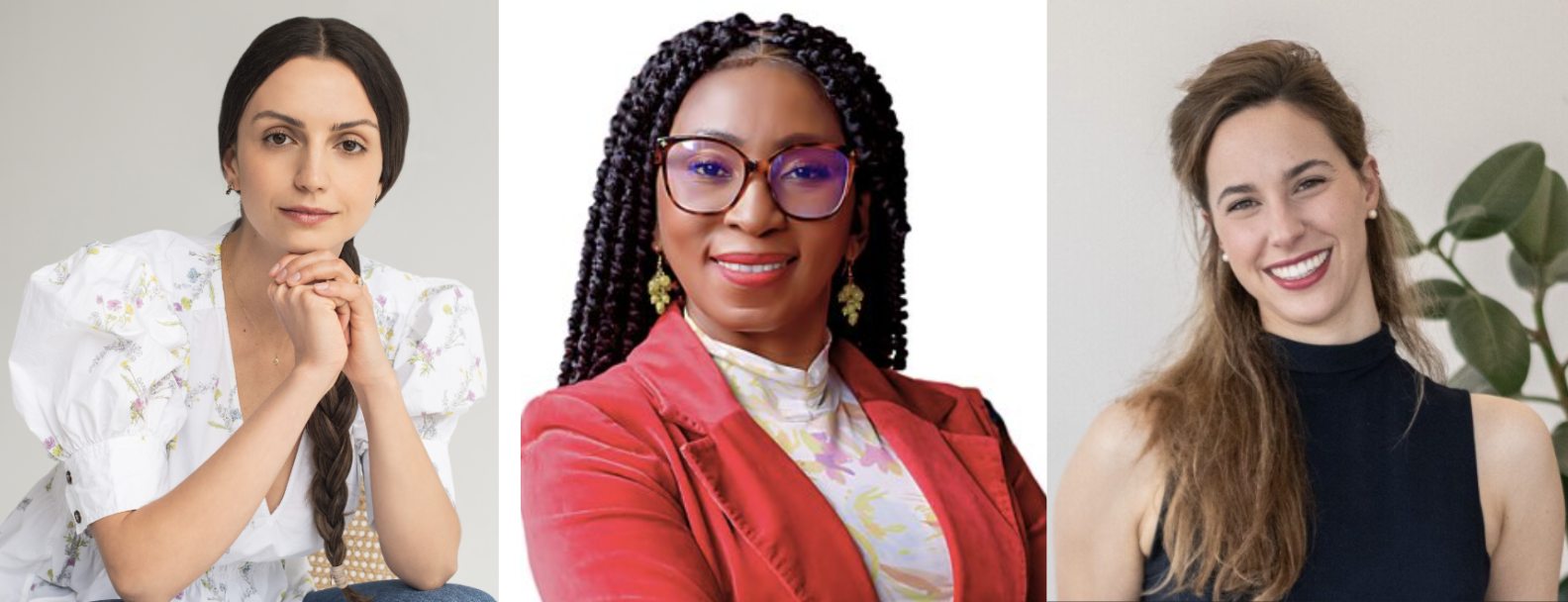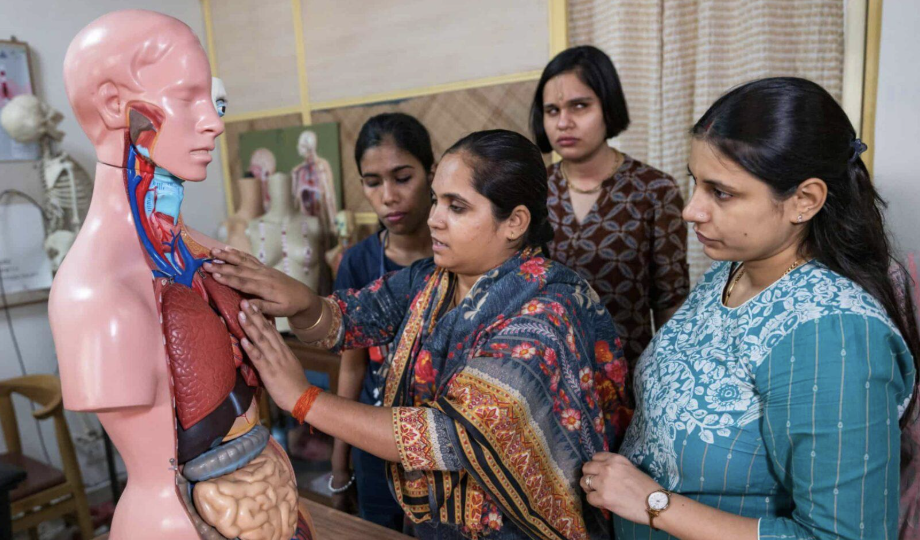May 29
Women’s Health by Those Who Live It
From period pain to fertility struggles, the diverse lived experiences of others has become a surprising yet powerful source of innovation.
Take Mary Kenner. Spurred on by menstrual blood leaking onto clothing — a common problem for women in the 1920s — she invented the adjustable sanitary belt. Her design became a precursor to modern day adhesive pads, quietly paving the way for more dignified period care.
In honour of stories like this and Women’s Health Month, we’re spotlighting women who turned frustration into action to build tools, companies, and communities that change the way we care for ourselves and each other.

Health, Reimagined by Her
✨Valentina Milanova, founder and CEO of Daye, took her experience of debilitating period pain and designed the first cramp-fighting tampon in 2020. Since then, Daye has gone on to create a suite of revolutionary products, including HPV and STI screening tampons. Through partnerships with charitable organisations supporting human and sexual trafficking survivors, her brand continues to reshape what inclusive gynaecological care looks like.
✨Fungai Ndemera, founder and CEO of CheckUp Health, noticed the challenges faced by chronic disease patients —especially those from minority ethnic backgrounds—as a result of healthcare staff shortages during the COVID-19 pandemic. She developed a platform featuring remote patient monitoring, multilingual support, and AI-generated prescription suggestions that bridges gaps for Black, Asian, and Minority Ethnic (BAME) patients.
✨Tess Cosad, co-founder and CEO of Béa Fertility, witnessed many of her loved ones struggle through painful, expensive, and isolating family planning journeys. She set out to change that through Béa’s at-home clinical grade insemination kit, a more affordable and approachable alternative to IVF. At a fraction of the cost of standard IVF treatments, Tess and her team are lowering barriers to care and reimagining what fertility support can look like.
(From left to right: Valentina Milanova, Fungai Ndemera, and Tess Cosad)

Beyond Being a Founder
Clearly, technology is great, especially when it’s from a place of genuine lived experience. Though at times, innovation comes through leveraging these experiences in entirely different ways.
In India, blind and visually impaired women are being trained as Medical Tactile Examiners (MTEs). They use their heightened sense of touch to detect breast cancer more effectively than some machines.
It’s a powerful example of how embodied knowledge can transform care, reduce stigma, and showcase how solutions don’t always have to be digital to be effective.
![]()
In India, blind and visually impaired women are being trained as Medical Tactile Examiners (MTEs). They use their heightened sense of touch to detect breast cancer more effectively than some machines.
It’s a powerful example of how embodied knowledge can transform care, reduce stigma, and showcase how solutions don’t always have to be digital to be effective.

🎤 Events
Impact Investor Office Hours (IIOH)
Whilst we’ve already highlighted a few incredible founders, we had the fantastic opportunity to meet many more at Unrest’s IIOH Pitch Night. The event brought together early-stage founders and socially driven investors looking to engage in authentic conversations around building impactful businesses.
We were honoured to be one of 11 founders pitching Dotplot, and we left feeling inspired by the ideas and perspectives we heard.
![]()
Our Takeaways for Dotplot
The stories above remind us that women’s health isn’t one-size-fits-all. It’s layered, personal, and often shaped by experience that doesn’t fit neatly into medical charts.
Even though everyone’s journey is unique in its own way, many women are deeply familiar with the uncertainty that comes with a self-check. We’ve felt it too — and we’re working to turn that feeling into something clearer, more confident, and more valuable for others, someday soon.
That’s all for this month. See you in the next one 😉
We were honoured to be one of 11 founders pitching Dotplot, and we left feeling inspired by the ideas and perspectives we heard.

Our Takeaways for Dotplot
The stories above remind us that women’s health isn’t one-size-fits-all. It’s layered, personal, and often shaped by experience that doesn’t fit neatly into medical charts.
Even though everyone’s journey is unique in its own way, many women are deeply familiar with the uncertainty that comes with a self-check. We’ve felt it too — and we’re working to turn that feeling into something clearer, more confident, and more valuable for others, someday soon.
That’s all for this month. See you in the next one 😉